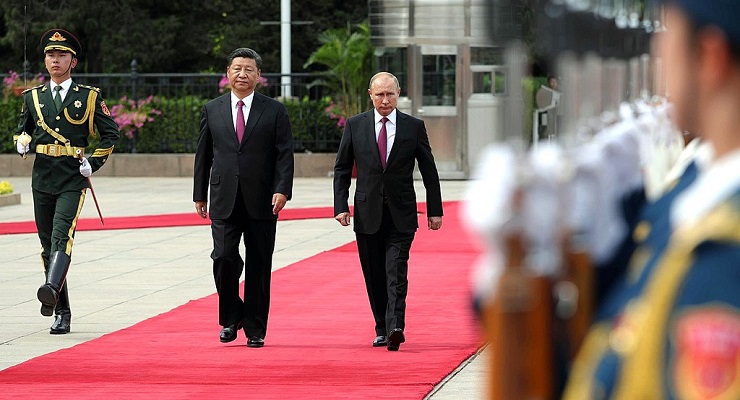
Although China is publicly calling for a solution to the crisis in Ukraine, its alliance with Russia remains firm. This article by Zack Cooper, Bret Schafer and Etienne Soula is published by Security Democracy. Here is an excerpt:
On February 4, 2022, Russia and China surprised many observers by releasing a joint statement promising a “no limits” friendship, which they described as “superior to political and military alliances of the Cold War era.” Just after the Beijing Olympics ended several weeks later, Russia invaded Ukraine. Leaders in China reportedly expected a quick Russian victory that would strengthen Russia, divide Europe, and distract the United States. Instead, the opposite occurred. Putin’s reckless invasion has weakened Russia, united Europe, and refocused the United States on confronting authoritarianism. From a strategic perspective, Russia’s invasion appears to be a disaster for both Moscow and Beijing.
It might, therefore, have seemed logical for Chinese leaders to tone down their rhetorical support for Putin in recent weeks. After all, China has frequently highlighted principles that are hard to square with Russia’s invasion, including “mutual respect for sovereignty and territorial integrity, mutual non-aggression, non-interference in each other’s internal affairs, equality and mutual benefit and peaceful coexistence.” And key democracies’ accelerating counter-balancing against both Russia and China is not in Beijing’s interests. Indeed, some Chinese scholars have privately suggested that Chinese leaders are trying to adjust their rhetorical support of Putin for exactly these reasons.
As we explain below, however, Chinese state media appears to be doubling down on Russian messaging and disinformation, based on data from our War in Ukraine and Hamilton 2.0 dashboards. Through a variety of information channels, Beijing is framing the conflict on Putin’s terms, promoting pro-Kremlin narratives, and embracing Russian disinformation campaigns, including falsely suggesting that the United States is funding biological weapons laboratories in Ukraine. This bodes ill not only for China’s relationship with the United States, but also for its ties with Europe. American and European experts are increasingly questioning whether it is possible to make progress with China on issues related to international security. In this sense, China’s response to Russia’s invasion is seen a litmus test—and Beijing is failing. China’s rhetorical support for Russia could therefore have far-reaching consequences for the prospects for cooperation among many of the world’s leading players in the years ahead.
Continue reading here.
Leave a Reply